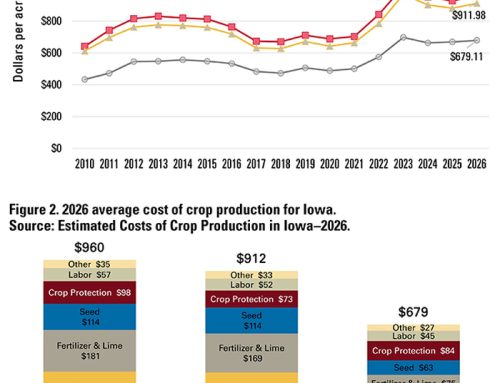By Cole Nickerson, Area Sales Manager, Farmers National Company
I often wonder what my grandpa would say if he could come back and see how farming has evolved from his days on an open cab 4020 John Deere. We live in an era of seemingly endless data, precision farming and constantly changing seed genetics. As technological advancements continue to reshape the farming landscape, it becomes imperative for both land buyers and sellers to know the effect these advances have on the properties they want to buy or sell.
Precision agriculture has made considerable progress in recent decades. Farmers now can adjust seed populations within a row, apply variable rates and types of fertilizers and herbicides precisely where needed, and rectify problem areas in their fields with precision. These advancements enhance efficiency and sustainability, and affect how farmers evaluate potential land purchases.
Consider an FNC-managed farm in western Nebraska as an example. This irrigated farm contained scattered areas with high pH soil, which limited production options to only corn. Through techniques such as grid sampling, spot application, and precision farming, we now can apply specific nutrients and fertilizers to problem areas, which now allows for soybeans to be produced there, too.
Another example involves a gravity-irrigated farm that uses variable-rate planting to adjust seed populations in different field areas. Higher seed populations are planted where water is abundant, while lower populations are used in areas near the bottom end of the rows where water accessibility is limited. This approach has reduced seed costs, increased yields, and created more efficient water usage. Previously, such farms would face greater discounts when put on the market, but thanks to technological advances, these properties are now fetching higher prices.
Technology also has revolutionized how we market and sell land. Our nationwide marketing strategy has never been more effective, with constant data inflow identifying new buyers and directing our marketing efforts. The surge in online bidding at auctions has expanded the buyer pool, with our simulcast auction method enabling bidding from anywhere with an internet connection.
Despite these advancements, the need for a local expert remains crucial. Approximately 80% of farmland purchases at FNC are still made by local investors and agricultural producers. The significance of having local knowledge, including farming practices, buyer demographics, and factors affecting specific farms, still are important.
Your local FNC farm manager or real estate salesperson serves as your “boots on the ground” resource for bringing your property to market. Contact your local FNC representative at 1-800-346-2650 or find more information on our website, www.farmersnational.com.


